From 2009 to 2021, Cherryland ran a state-mandated energy waste reduction (EWR) program that required us to incentivize a 1% reduction in our electric sales annually by offering rebates to our members for energy star appliances and lighting upgrades. While we are proud of the impact we had, we celebrated the end of that mandate because it was costly to administer and it was no longer meeting the needs of our members.
During our first year with full control over our energy program, we shifted our focus away from EWR and toward greenhouse gas (GHG) reduction. This allowed us to broaden the scope of our rebate program to include modern and emerging technologies like heat pumps, electric vehicles, and even autonomous electric mowers while still rebating efficiency measures like Energy Star-rated appliances. The feedback from our membership has been overwhelmingly positive.
To monitor our effectiveness, we worked with an engineering firm to design a model that measures the GHG reduction impacts of our energy programs. I’m pleased to report that in 2022, our rebate program resulted in an annual GHG reduction of 254 tons. That’s roughly the equivalent of the carbon captured by 12,700 trees annually throughout the lifetime of the item we rebated.
Unlike the state-mandated EWR program, many of the technologies we are rebating do not lead to lower sales. Conversely, they grow new electric sales because the member benefitting from the rebate is often transitioning from a fossil fuel to our 62% carbon free electricity. This is good for the environment because it decreases the carbon impact of that heating or transportation source. It’s good for the cooperative because higher sales mean more kilowatts to spread our costs across. And it’s good for our members because these technologies help them meet their environmental and home comfort goals.
This shift in our energy program stemmed from feedback from our members. That’s one of the neat things about being a cooperative— we don’t need state mandates to do the right thing for our members. It’s literally built into our business model DNA. That’s why I am baffled and disappointed to see that current energy legislation in the Senate (SB 273) proposes to not only reinstitute an EWR mandate for Michigan’s electric co-ops but to double the mandated requirement.
During the 13 years of the EWR mandate, Cherryland spent over $3.5 million to meet the requirement. On average, we gave out $138,000 annually in rebates, and the rest of our costs were administering the program and satisfying the state’s reporting requirements. In 2022, without the administrative burden of the mandate, we were able to fund almost $200,000 in rebates and an additional $50,000 toward programs for low-income households. Reinstating new EWR requirements would be devastating for our energy program because it would inevitably require us to pull resources away from the programs we’ve developed over the last year.
Cherryland’s only goal is to meet our members’ needs. As our members’ needs have evolved, we have worked hard to evolve with them. As the Senate and House continue to revise their future energy bills, I urge them to allow cooperatives to administer programs in partnership with their members that are responsive to the unique needs of their rural communities. So far, year to date, we’ve worked with our members to reduce 241 tons in GHG emissions. They’re happy, we’re happy, the environment is happy. So, what problem is this mandate really trying to solve?



Keep up the good fight, we agree this government mandate can best be served by co-ops not big government. Thanks for the update and transparency.
Thanks for the comment, George. I agree! Co-ops are a great way to keep decision-making and power local. We just need to continue to advocate for the freedom to do so.
Thank you Rachel. Unlike your predecessor, you seem to understand that our progressive government officials are far more interested in exerting control than actually solving problems logically in cooperation with those who know the best solutions. Kudos to you, and please continue to resist!
Hello Rachel,
The GHG program sounds great, but I don’t see why not do both, use incentives for consumers to reduce energy waste via the Energy Waste Reduction program as well as continue with the greenhouse gas (GHG) reduction program? I understand the administrative costs are a bit higher, but I’d rather see a reduction in energy use overall as well as green house gas–and I am willing to forego a small rebate if it means a long-term benefit for our environment and thus a benefit to future generations. I suspect many of my fellow members would also like to see an overall benefit to the environment while getting incentives to reduce energy usage (such as rebates for purchasing energy star/efficient appliances, etc).
We’re at a point where we all have to chip in and bear/share the costs if we truly want to reduce the escalating negative impacts of global climate change. The overall benefit to the earth and building true community are priceless.
Hi Susan,
The beauty of the program we designed is that we are currently doing both – we offer rebates for energy waste reduction (including energy start appliances) and rebates for new electrification measures. The GHG model we use converts both of those measures into GHG reduction analytics. So, we get the best of both worlds using the model we created.
Moving back under the state mandate is not going to be “a little bit” more expensive, it is likely to be quite expensive. One of the things I didn’t have space to talk about in the column is how difficult it is to meet the mandated requirements as a utility that primarily serves residential members who average 700kWh/month, compared to the national average of about 900kWh/month. We just don’t have a lot of fat to trim and the law of diminishing returns means the savings we can chase tend to be pretty expensive because the easy/affordable savings have already been captured.
My concern with this legislation is partially about the increased cost, but more about increasing our costs while making our program less impactful. Which is what this mandate will do.
Thanks for the comment.
Rachel